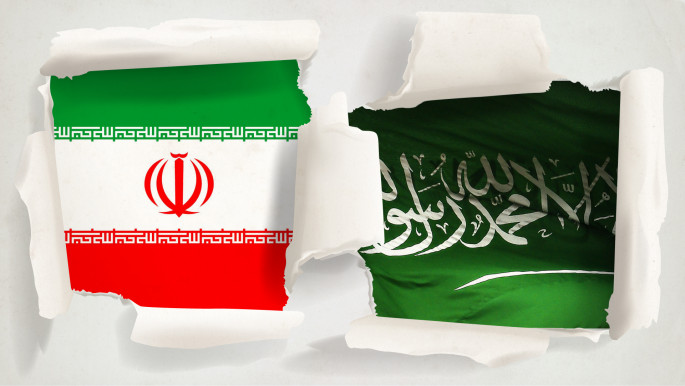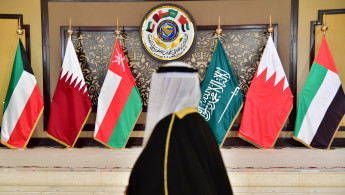Oman: Caught in the storm
The question remains whether Oman can maintain its neutral position and for how long or it will be forced to leave its carefully crafted neutral stance and seek new partnerships?
The Sultanate of Oman has been often described as the "middleman" or the "oasis of peace and stability" due to its independence in balancing regional and domestic challenges.
However, its neutrality may be compromised by the mounting geopolitical tensions in the region. Its traditional neutrality towards regional rivalries has also caused frustration of its powerful neighbours, notably Saudi Arabia in its attempt to dominate the Arab block of states.
The internal GCC diplomatic crisis between Saudi Arabia and Qatar, starting last June as well as Donald Trump's decision to withdraw from the Iranian nuclear deal have triggered tectonic shifts at the Arab peninsula.
Changing regional dynamics may push Oman to reconsider its future strategy, especially its relations with fellow GCC neighbours whose recent behaviour have undermined the stability of the region.
This is why some have come to the conclusion that the uncertain future of GCC may encourage Oman and other Gulf states to seek new alternatives due to the diminishing relevance of GCC.
Will Oman leave the GCC?
Oman faces major regional dilemmas as it seeks to maintain a "friends-of-all" foreign policy at a time when Saudi Arabia and the UAE are pressuring other Arab/African states to unite against Tehran and Doha, notes Giorgio Cafiero, CEO, and Founder of Gulf State Analytics.
 |
Oman's leadership is very much at odds with Riyadh and Abu Dhabi |  |
Unlike Kuwait – which has stood both politically and economically neutral – Oman has maintained only political neutrality while significantly increasing trade with Qatar. Oman's decision not to join the siege of Qatar has been interpreted as a sign of support to the tiny emirate which has openly challenged Saudi pressure on the smaller GCC states to align closely with Riyadh by cutting off ties with Iran and Qatar.
|
The tensions among the GCC members has become even greater after Saudi Arabia and the UAE signed a bilateral agreement called "Strategy of Resolve" which de facto means the creation of military and economic pact of two strongest Arab states, outside the GCC framework.
For Cafiero, Oman's leadership is very much at odds with Riyadh and Abu Dhabi with respect to a host of regional issues from the Yemen war to the Qatar blockade and unresolved questions about Iran's role in the Arab/Islamic world.
"From Muscat's perspective, Saudi and Emirati conduct in the Middle East has been too impulsive, brash, and hawkish with negative implications for Oman's security and autonomy as an independent state," he told The New Arab.
The decline of the GCC importance, which will certainly have long-standing consequences for its members, inevitably opens the question of Oman's further persistence in this ineffective organisation.
To be sure, it's in the interest of Oman and other smaller members to work to save the GCC, as they have gained the most from the protective umbrella of the Gulf organisation. Moreover, Oman needs to be part of a functioning GCC, especially now that the sultanate's financial position is vulnerable.
Oman's international credit ratings, despite recent recoveries in oil prices, were downgraded to 'junk' status by Standard & Poor last year, while the country is facing serious problems in securing state budget.
"Leaving the GCC seems like a rash action Oman would unlikely carry through or even contemplate," according to Dr Jeffrey Lefebvre Associate Professor of Political Science at the University of Connecticut.
"One should keep in mind that Muscat has tended to undertake positive rather than negative actions in the conduct of foreign policy."
He recalls that Oman has adopted policies in the past out of step with other Arab Gulf states. Oman, for example, supported Egypt's peace treaty with Israel in 1979 and signed on to the Carter Doctrine to support US military intervention in the Persian Gulf in 1980 before joining the GCC in 1981. Muscat stood by these policies throughout the 1980s even after joining the GCC when other GCC members opposed or refused to publicly endorse them.
Growing tensions with fellow GCC members
In the last few years relations between Oman and two of the strongest GCC members have been anything but close and brotherly, especially after series of gaffs performed by UAE.
In June, for example, a UAE series portrayed an Omani historical figure as an Emirati icon, and last year, the Emirati authorities presented a map at the new Louvre Museum in Abu Dhabi which included the Omani province of Musandam within its border. Omani officials on several occasion also expressed their concerns about the regional ambitions of the Emirates, whose increased activity throughout the region makes them feel more and more surrounded.
 |
|
| Read also: Middle East rivalries threaten Europe |
If Saudi Arabia and the UAE broke away from the GCC and the organisation effectively ceased to exist as a meaningful and functional institution, there is a general belief that Oman would likely turn its focus to cooperation with states outside the Persian Gulf in the Indian Ocean region.
Lefebvre believes that Muscat's first choice would be India as Oman would likely seek to expand commercial, and perhaps military, relations with New Delhi, since a large Indian population lives in Oman and has been accepted (i.e., the building of Hindu shrines) and integrated into Omani society.
Cafiero noted that with Mohammed bin Salman and Mohammed bin Zayed at the helm of Riyadh and Abu Dhabi's foreign policy decision-making, the Sultanate will be keen on maintaining its brotherly relations with both Saudi Arabia and the UAE. But he also anticipates that Oman would invest in ties with other allies and partners such as the US, UK, India, Pakistan, China, and Iran, to counter-balance Riyadh and Abu Dhabi's influence over Oman.
Post-Qaboos challenges
In addition to external diplomatic and security challenges, the future of Oman is even more uncertain due to serious health problems of Oman's aged ruler, Sultan Qaboos bin Said, who reportedly suffers from terminal cancer.
Sultan Qaboos has shaped the country's foreign policy for four decades and all core decisions are made by him. Many wonder whether the future ruler will continue the current independent foreign policy and how the country will respond to numerous regional and internal challenges.
Some analysts fear that the Saudis or Emiratis may interfere with Oman's succession process, attempting to bring Oman back in line and under their suzerainty in a similar fashion to Bahrain.
They also recall the case of Sheikh Tamim bin Hamad al-Thani in Qatar, when Saudi Arabia tried to press the young Qatari leader under Riyadh's sphere of influence and regional foreign policy.
But according to Cafiero, the "Qatar treatment" of Oman is not likely to happen, stating that Qatar's geography made Doha somewhat vulnerable to a blockade imposed by Saudi Arabia, the UAE, Bahrain, and Egypt, but Oman's geography would prevent these Arab states from imposing a blockade on the Sultanate.
However, in the light of recent events in Istanbul connected with the brutal murder of the Saudi journalist Jamal Khashoggi, apparently with the consent/knowledge of Crown Prince Mohammed bin Salman, Lefebvre believes that Riyadh is likely to "tone down what is seen as an aggressive foreign policy."
 |
In late October 2018, the Sultan met with Israeli Prime Minister Binyamin Netanyahu in Oman and stated that Israel had a right to exist as a state in the region |
 |
"The Kingdom is coming under increasing congressional scrutiny in the United States, especially concerning its brutal conduct of the war in Yemen."
In addition to this, any pressure from Saudi Arabia and the UAE would likely be opposed by important sections like the US State Department and the Pentagon, no matter what President Trump might think.
Let us not forget that in the past forty years, Oman has openly supported US policy in the Persian Gulf as well as the Arab-Israeli peace process. In late October 2018, the Sultan met with Israeli Prime Minister Binyamin Netanyahu in Oman and stated that Israel had a right to exist as a state in the region.
On the other hand, Cafiero adds that Oman has a strong incentive to maintain its "special relationship" with Iran.
These factors pertain to history, energy, geopolitics, trade, geography, and other issues which for decades have prevented Oman from aligning with Saudi Arabia against Tehran despite the Sultanate being a founding member of the mostly anti-Iranian GCC.
He is convinced that the Omani leadership will not welcome any foreign government's efforts to pressure Muscat into joining the anti-Iranian bandwagon of Arab states which favor the Trump administration's hawkish strategies for countering the expansion and consolidation of Iranian influence.
Moreover, Lefebvre notes that would be wise for Iran to maintain a low profile in Oman. He believes that Tehran will likely avoid taking any actions that might jeopardise Oman's friendly relations with Iran and push Oman into the Saudi-led anti-Iran axis in the region.
"Oman's foreign policy as it now stands suits Iranian regional interests just fine even given Oman's close political-military relationship with the United States," he added.
A glimpse into the future
Any power vacuum in post-Qaboos Oman will certainly lead to destabilisation of the country which could become a pray of regional rivals and external factors.
 |
Any power vacuum in post-Qaboos Oman will certainly lead to destabilisation of the country which could become a pray of regional rivals and external factors |  |
Nevertheless, Lefebvre expects Oman to maintain a similar pragmatic and independent foreign policy. He thinks this will be made possible by Muscat's continuing political-military and security cooperation with the United States, coupled with Oman's positive relations with Tehran, allowing Muscat to act as a facilitator between Washington and Tehran.
According to him, neither Washington nor Tehran would benefit by allowing Saudi Arabia and the UAE to threaten Oman's independent foreign policy and see Oman become another Bahrain dominated by Saudi Arabia.
The skilful navigation through the stormy waters of the Gulf, for which the country earned the reputation of a neutral player in, will be sorely tested in the near future. And it better be prepared for some big waves.
Stasa Salacanin is a freelance journalist who has written extensively on Middle Eastern affairs, trade and political relations, Syria and Yemen, terrorism and defence.



